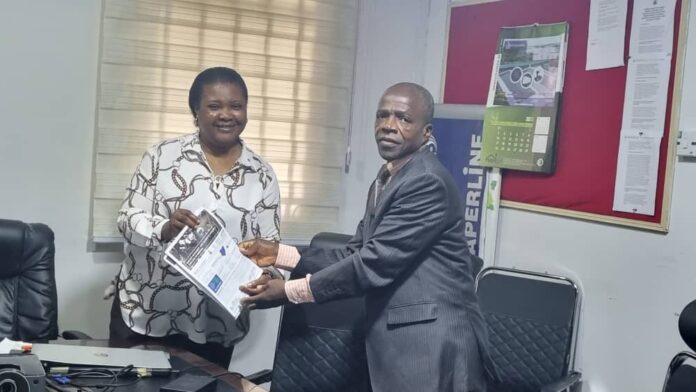The Federal Ministry of Industry, Trade and Investment (FMITI) has underscored the significance of extensive education and training for artisans, particularly in the areas of air conditioner (AC) installation, maintenance and disposal. This push aims to enhance efficiency and energy conservation within the AC sector.
The deputy director of the Industrial Development Department (IDD) at FMITI, Mrs. Ajayi Ade made this call during a meeting with the project team of “Scaling Up Energy Efficient and Climate-Friendly Cooling in Nigeria’s NDC Revision” at the ministry’s headquarters in Abuja. Ade stressed the strategic importance of the project’s implementation, emphasising that artisans play a pivotal role in determining the efficiency of ACs assembled or imported into Nigeria.
Ade reiterated the necessity of comprehensive enlightenment and awareness campaigns to familiarise Nigerians with the advantages of using energy-efficient cooling systems. She highlighted the potential benefits in terms of reduced power consumption and energy conservation.
Furthermore, Ade assured the project team of FMITI’s unwavering commitment to partnership, noting that the ministry would serve as a bridge between the project team and other agencies operating under its jurisdiction.
The director of linkages, research and consultancy at the Energy Commission of Nigeria, Engr. Okon Ekpenyong provided insights into the project’s origins. He explained that the commission, aligned with its mandate for strategic planning and coordination of national energy policies, applied for the project when it was announced by the Clean Cooling Collaborative and ClimateWorks Foundation (CCC/CWF) in 2020. Subsequently, the project received approval for a three-year implementation period, with technical assistance from the United Nations Environment Programme (UNEP).
Ekpenyong elaborated on the project’s core objective: expediting the shift to energy-efficient ACs using climate-friendly refrigerants (low-GWP refrigerants) in residential, commercial, and public buildings. This transition aligns with Nigeria’s climate targets, as outlined in its Nationally Determined Contributions (NDCs), and does so in a manner that is both cost-effective and sustainable. The project’s key activities encompass integrating cooling targets into the NDC implementation plan, developing a policy framework to accelerate the shift to energy-efficient ACs through a national cooling plan, raising awareness and fostering behavioural change among the general public and businesses and conducting capacity-building programs.
Ekpenyong further emphasised that the project’s success hinges on enhancing the skills of technicians to ensure proper maintenance of ACs, as the installation process significantly impacts performance.
“To effectively disseminate this campaign, we will leverage robust communication strategies to ensure a clear understanding of the benefits of efficient cooling. We rely on your industry connections to help propel the project’s success,” he added.
Etiosa Uyigue, the National Project Coordinator, delved into the project’s focus on air conditioners and the need to define their efficiency, alongside fridges. Uyigue emphasised the necessity for an energy efficiency index.
“Our primary aim is to determine the efficiency levels of the air conditioners available in the market. The project will also review and elevate the current minimum energy efficiency standards. However, we’re adopting a strategic approach to balance affordability and efficiency when setting these standards.”
Uyigue continued, “Part of our strategic approach involves conducting an impact assessment. By shifting the minimum energy efficiency standards, we must evaluate the potential effects on the economy. We aim to strike a balance between economic considerations and affordability. This is why our market assessment is crucial; it provides essential data for our impact assessment. We’re seeking assistance from industries, such as AC assemblers, to share data with us. Additionally, we’re collaborating with the Nigeria Customs Service (NCS) to acquire information on annual AC imports from 2015 to 2022. This data will enable us to estimate the AC stock in the market and make projections for our impact assessment”.
In conclusion, FMITI’s emphasis on education, training, and efficient AC implementation through collaboration with industry experts, technicians, and relevant agencies highlights a decisive step towards advancing energy efficiency and sustainability in Nigeria. This endeavour aligns with global efforts to mitigate climate change while enhancing economic prospects.


